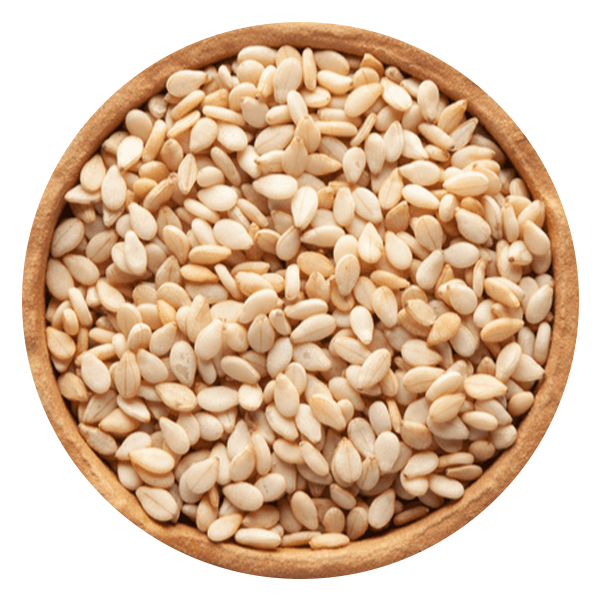White Sesame Seeds (Natural, Hulled)
| Name |
White Sesame Seeds (Natural, Hulled) |
| Botanical Name |
Sesamum indicum |
| Other Name |
Safed Til |
| Origin |
India |
| Usage |
Culinary, Bakery, Oil Extraction, Health Foods, Confectionery |
| Type |
Natural White, Hulled |
| Color |
White / Off-white |
| Oil Content |
48% – 52% (variety dependent) |
| Purity |
99% and above |
| Shelf Life |
12 Months from production date |
| GMO Status |
Not genetically modified |
| Storage Condition |
Cool and Dry place (20–25°C) |
| Packaging |
25kg & 50kg PP / Jute / Craft Paper Bags |
| Labeling |
As per Buyer’s Requirement |
| MOQ |
5–10 MT |
